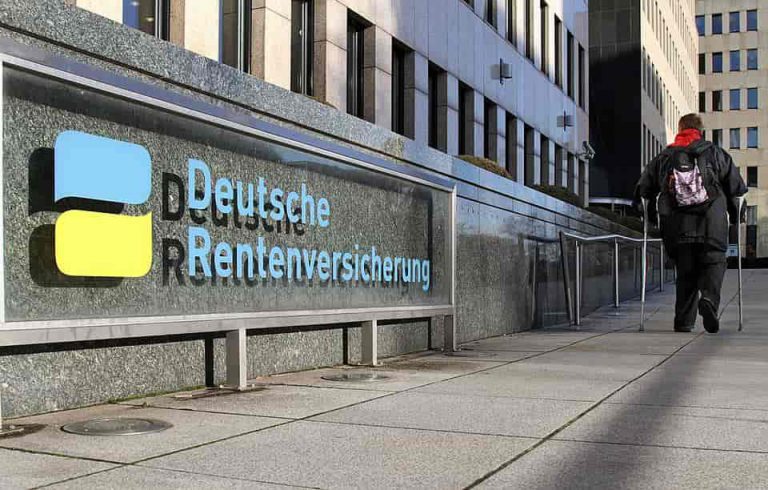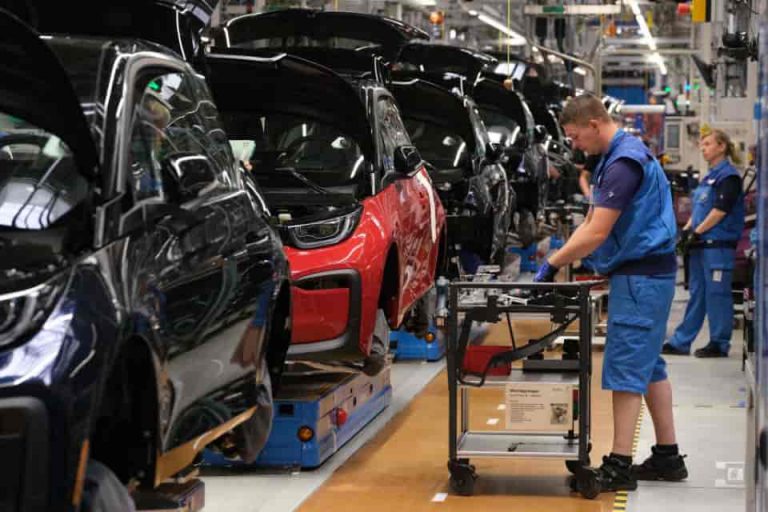Stock markets around the world are reigning with massive losses, and the price of oil is falling by almost 30 percent. Concerns about the economic consequences of the coronavirus epidemic are growing. What measures are being taken? An overview.
How does the coronavirus affect the global economy?
Stock market and oil price crash
There is growing concern about the economic consequences of the coronavirus epidemic. On Monday, March 9th 2020, stock markets worldwide reacted with large losses. First the stock exchanges in Asia collapsed, the Japanese leading index Nikkei lost 5 percent. Moreover, the German leading index Dax dropped by 8.04 percent at the start of trading and the EuroStoxx 50, the leading index within the euro zone, fell by 5.66 percent. Traders spoke of a “black Monday” in light of the stock market crash.
On top of this comes the fear of an oil price war after the failed negotiations on a reduction of the production volume. The oil market collapsed by 30 percent, the biggest drop in prices since the Gulf War in 1991. A barrel (159 liters) of North Sea Brent crude cost just under US-dollars 33 on Monday, almost 12 US-dollars less than on Friday evening. The price of American WTI crude oil also fell by around 12 US-dollars to under 30 US-dollars.
The Organization of Petroleum Exporting Countries (OPEC) was unable to reach an agreement with its partners on Friday to reduce production volumes, with Russia in particular blocking the move. The largest producer Saudi Arabia then announced on Sunday that it would lower the official selling price (OSP) for all types of crude oil and all customers.
Forecasts for global economic development corrected
As early as February, the OECD had already revised its expectations for global economic development downwards due to the coronavirus epidemic. The OECD now expects global growth of no more than 2.4 percent.
However, if the virus continues to spread and the restrictions and countermeasures become even more severe, the OECD expects global growth to be reduced by half this year.
The tourism industry, trade fairs, the general consumer mood and the stock markets will also be affected. According to the OECD’s chief economist Laurence Boone, consumer confidence and financial markets have been hit.
Disrupted supply chains and logistics
The fact that factories in China have been at a standstill to some extent, led to an overall decline in production. Production supply chains are being interrupted, and companies are having to cut back or stop production.
Currently, China is estimated to produce at 60 to 80 percent of its production capacity, according to the Kiel Institute for the World Economy. As a result, leads to bottlenecks in other countries. The institute expects managers to rethink, a kind of “Lehman Brothers moment”, in memory of the bank Lehman Brothers, which went bankrupt in 2008, whose bankruptcy at the time triggered a worldwide banking crisis.
In the case of the coronavirus, rethinking would mean that we will probably bring a more production back to Europe in the long term, that the value creation chains will become shorter and globalisation will decline a little.
International Automotive Industry
Due to the problems in supply chains and logistics, the automotive industry in particular could feel the consequences of the corona virus. Because the automotive industry has relatively complex supply chains both within China and globally, and this now also affects the isolation of the entire region around Wuhan.
The Boston Consulting Group has calculated that around two million cars roll off the assembly lines every year in Hubei Province, the Chinese province most affected by the virus – that’s eight percent of total vehicle production in China.
Joint ventures with Honda, the Peugeot and Opel parent company PSA and Renault also have their headquarters in the sealed-off provincial capital of Wuhan. In addition, there are around 700 domestic and foreign automotive suppliers who produce parts for the global automotive industry in the region.
What impact is felt by the German economy?
Exhibitions & Trade Fairs
In Germany, particularly large events and trade fairs are affected by the consequences of coronavirus. After the tourism fair ITB in Berlin and the craft fair in Munich, the city of Leipzig has cancelled the book fair because of the coronavirus. The industrial fair Hannover Messe and the fitness fair Fibo in Cologne have been postponed.
Those responsible for the Leipzig Book Fair, the mayor of the city and the Leipzig health department justified the cancellation with safety concerns. They said that it was a preventive measure to avoid further spread of the virus in Germany. The background is the general precautionary measures for public events.
The fair was scheduled to open on the evening of March 11 and last until Sunday evening (March 15). About 2,500 exhibitors from 51 countries had registered for the traditional industry meeting.
Automotive Industry
China is the most important sales market for the German automotive industry. Car manufacturers such as Volkswagen now sell almost every second car in Mainland China. The over 5,000 German companies on site are already warning of massive profit collapses.
At the same time, the industry in Germany is threatened with shortages. According to the Süddeutsche Zeitung, production in Germany is likely to come to a standstill in the near future due to a lack of supplies from Asia. Germany’s strength in global trading involvement might become a weakness in the crisis.
Air & Rail Traffic
Many airlines have discontinued their flights to China as well as within Europe. Lufthansa, according to its own statements, will discontinue flights to China by the end of the winter flight schedule at the end of March.
While air traffic is partly restricted, Deutsche Bahn has not yet noticed any economic effect from the coronavirus. Neither are there fewer passengers, nor are they unprepared.
Consumer Spending
The coronavirus has also led to an increased demand for canned foods in Germany. Disinfectants and mouth masks are already in short supply. However, there are no shortages in the supply of commodities, according to a spokesperson from Germany’s leading retailer Rewe.
The frequency of deliveries to the markets, however, has been increased. Lidl, another major retailer and part of the German Mittelstand, is recording significantly higher sales according to its own statements. In addition to food, there is also a strong demand for hygiene products such as toilet paper and disinfectants, the Lidl press office announced.
What international measures are being taken?
The G7, the seven leading industrialised countries, have confirmed their commitment to limiting the economic consequences of the coronavirus epidemic. They will “use all appropriate policy instruments to achieve strong and sustainable growth and hedge against downside risks”, they said after a conference call of finance ministers and central bank governors. The finance ministers were also prepared to take fiscal measures, such as higher government spending, if necessary.
The International Monetary Fund and the World Bank had also offered their member states support – for example in the form of financial aid to strengthen health systems, especially in poorer countries.
The OPEC and its partners are under pressure because the spread of the coronavirus is causing economic problems worldwide. At a meeting in Vienna, the member countries therefore proposed to cut production by 1.5 million barrels per day. Two thirds of this should be allocated to the OPEC states, one third to the cooperation partners, including Russia.
Measures taken by central banks
The US Federal Reserve FED also sees risks for the economy due to the coronavirus and has surprisingly lowered the key interest rate – by half a percentage point to between 1 and 1.25 percent.
In view of the spread of the coronavirus, the European Central Bank has also declared that it will protect the euro zone against the resulting risks. The central bank intends to monitor the effects on the economy, inflation and monetary policy closely – it has not yet taken any targeted measures.
The ECB also has no more real room for improvement as far as the key interest rate is concerned, as it has already been reduced to zero. Although the central bank could buy bonds on an even larger scale and push the penalty interest rate for banks even further into the red, economists and analysts consider this to be premature.
What are the measures taken by Germany?
To protect businesses from the effects of the coronavirus crisis, the governing coalition of CDU and SPD has decided on several measures. For example, the payment of short-time work compensation shall be made easier and longer.
The government wants to provide financial support to companies that are particularly affected by the crisis by means of liquidity assistance. In addition, the German government wants to put together an additional investment package worth 12.4 billions euros.
According to the government, the short-time work allowance rule should already take effect when only 10 percent of the employees are affected by the loss of work instead of the current one third. As early as the end of January, coalition leaders had decided that the government could more easily extend short-time work benefits from 12 to 24 months.
In the case of short-time work compensation, the Federal Employment Agency will pay 60 percent of the lost net wages if a company sends employees on short-time work. This should help to avoid layoffs. In addition, employers will now also be fully reimbursed for social security contributions for the lost working hours.
The Ministry of Economics had already presented a three-step model in view of the corona crisis:
The German economy is currently in phase 1. In some cases, companies are experiencing problems, but it is possible to fall back on instruments that already exist, such as working capital or loans from the state-owned KfW banking group. All sectors could be covered, from industry and trade fairs to tourism. If the situation were to become more severe, the second stage would be initiated. As a result, the existing instruments would then be expanded.
The third stage would only apply in the event of a severe recession, before any real economic recovery programmes could be implemented. Finance Minister Olaf Scholz had already announced that he would also take these measures – if the situation required it.











